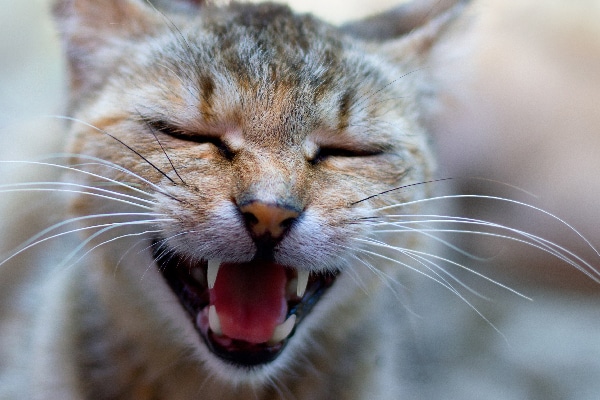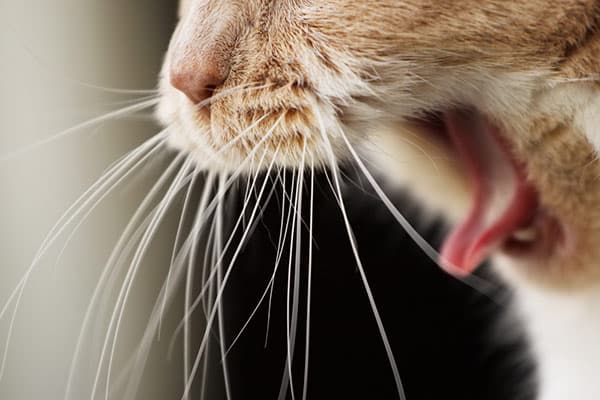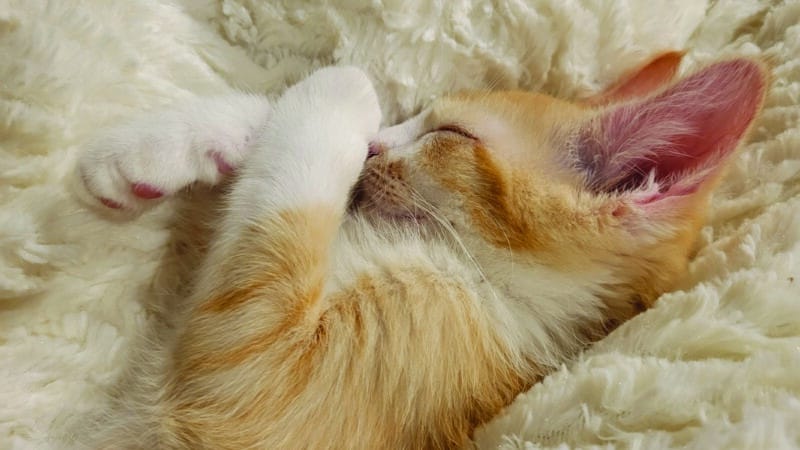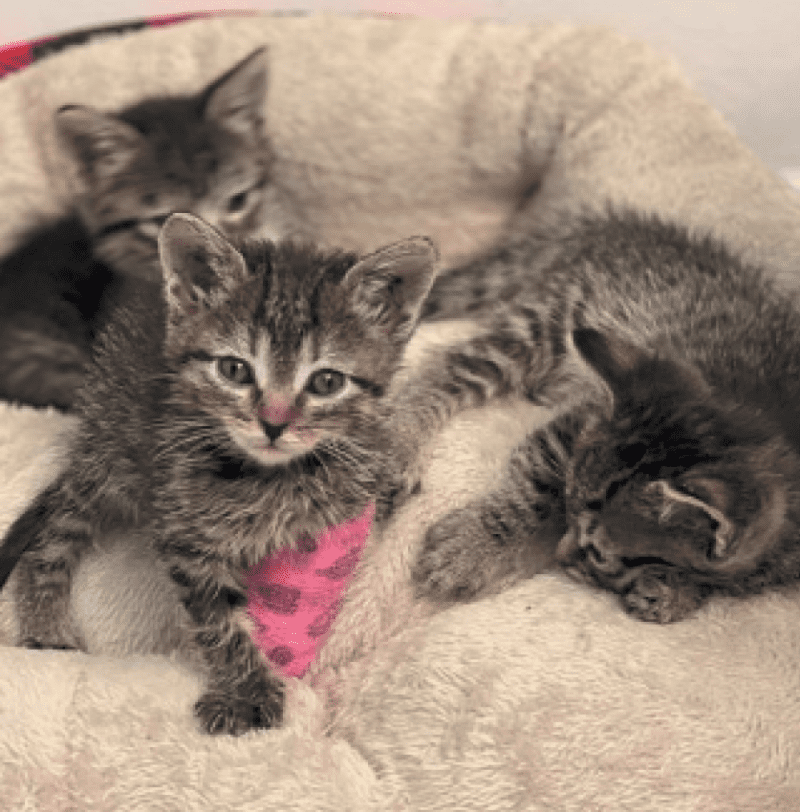Like humans, cats experience irritation in their lungs, throats and airways, which might result in coughing. Some of the causes of cat coughing are simple to treat, while others are potentially life threatening. That’s why it’s important to recognize symptoms of different types of cat coughing — and seek treatment if necessary.
First, what does cat coughing sound like?

Cat coughing can present in several ways: moist; dry and hacking; and gagging or wheezing. Identifying the type of cough will help determine the course of action.
What causes cat coughing?
Coughing is a function of the respiratory system, so cat coughing is often a sign that there’s some sort of irritation or inflammation involving that system. It’s not always the case, though. Leave it to cats to keep us guessing!
1. Hairballs
We all know that telltale hacky-acky sound — it’s the cough that precedes vomiting up a hairball. Dr. Jean Hofve says, “In my experience, there are two main reasons for cats to cough: a stubborn hairball, and feline asthma.
2. Upper respiratory infections
A sudden onset of coughing could indicate an upper respiratory infection, which is common in cats. In addition to coughing, other symptoms could include sneezing, congestion, runny nose, coughing, nasal discharge, gagging and decreased appetite.
3. Asthma
A cat with a history of coughing might have asthma. Like in humans, asthma causes the immune system to go into overdrive, which causes inflammation. What that means to the respiratory system is that the swelling could affect the lungs and airways, making breathing difficult. In extreme cases, the inflammation may cause life-threatening distress.
4. Heartworms
Heartworms are spread by mosquitoes and the symptoms are similar to asthma signs. (And just when we thought mosquitoes couldn’t get any more annoying!)
5. Lung cancer
In addition to coughing, lung cancer symptoms may include pain, difficulty breathing, rapid breathing, lethargy, weight loss and coughing up blood.
6. Congestive heart failure
When the heart can’t pump enough blood into the body, fluid might back up in the lungs. This is congestive heart failure. Although it’s usually caused by the thickening of the heart’s walls, it could also come from high blood pressure, thyroid disease or birth defects. A cat with congestive heart failure will cough, have trouble breathing, exhibit weakness and loss of appetite or — sadly — even die suddenly.
How to treat cat coughing
The treatment for cat coughing depends on the type of cough and the causes behind it.
Allergens like pollen, mold, cat litter, dust and cigarette smoke might trigger asthma. Removing these allergens from the home may help the symptoms. Arden Moore, pet health and safety coach, says, “A cat with new litter might start to cough due to high dust inhaled from the litter (sadly, often a bargain brand that is anything but a health bargain to the poor cat).” In chronic asthma cases, veterinarians might prescribe a steroid treatment.
For upper respiratory infections and heartworms, a veterinarian may prescribe medications and perhaps send you home with instructions to help kitty’s recovery go smoothly.
If the cat is otherwise in good health, you can try a dose or two of Vaseline (a good finger-full by mouth),” Dr. Hofve advises on at-home remedies for cat coughing. “If it’s fur, it can often be lubricated and pushed out with the stool.”
When to see a vet about cat coughing
If your cat starts coughing, and you’ve ruled out hairballs and tried simple allergen removal, it’s time to visit the vet. “If that [Vaseline treatment] doesn’t work, or if kitty is distressed by the coughing, then it’s time to see your veterinarian,” Dr. Hofve says. “Of course, if the cat is having trouble breathing, seek emergency veterinary care immediately.”
As always, when in doubt, contact your veterinarian about cat coughing. Being able to describe the cough and any details about behavior or environment will help the professional in determining the reason for the coughing and treating it accordingly.
Thumbnail: Photography by Suzanne Tucker / Shutterstock.








